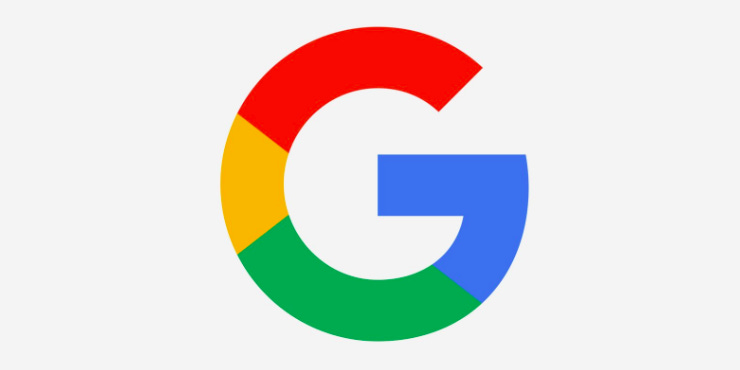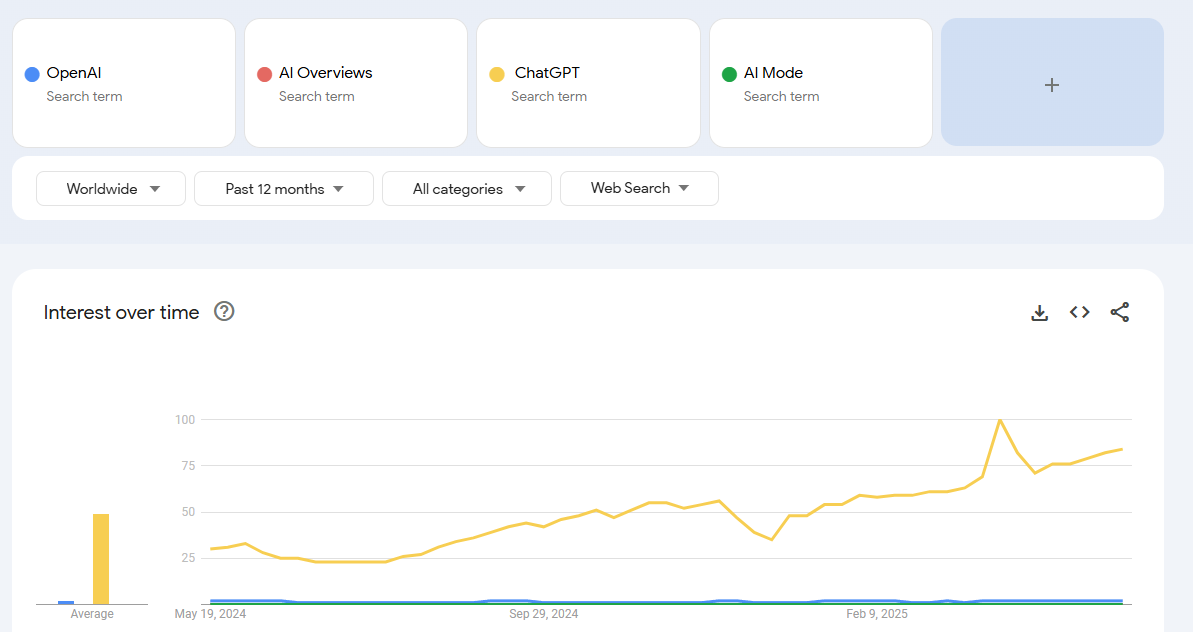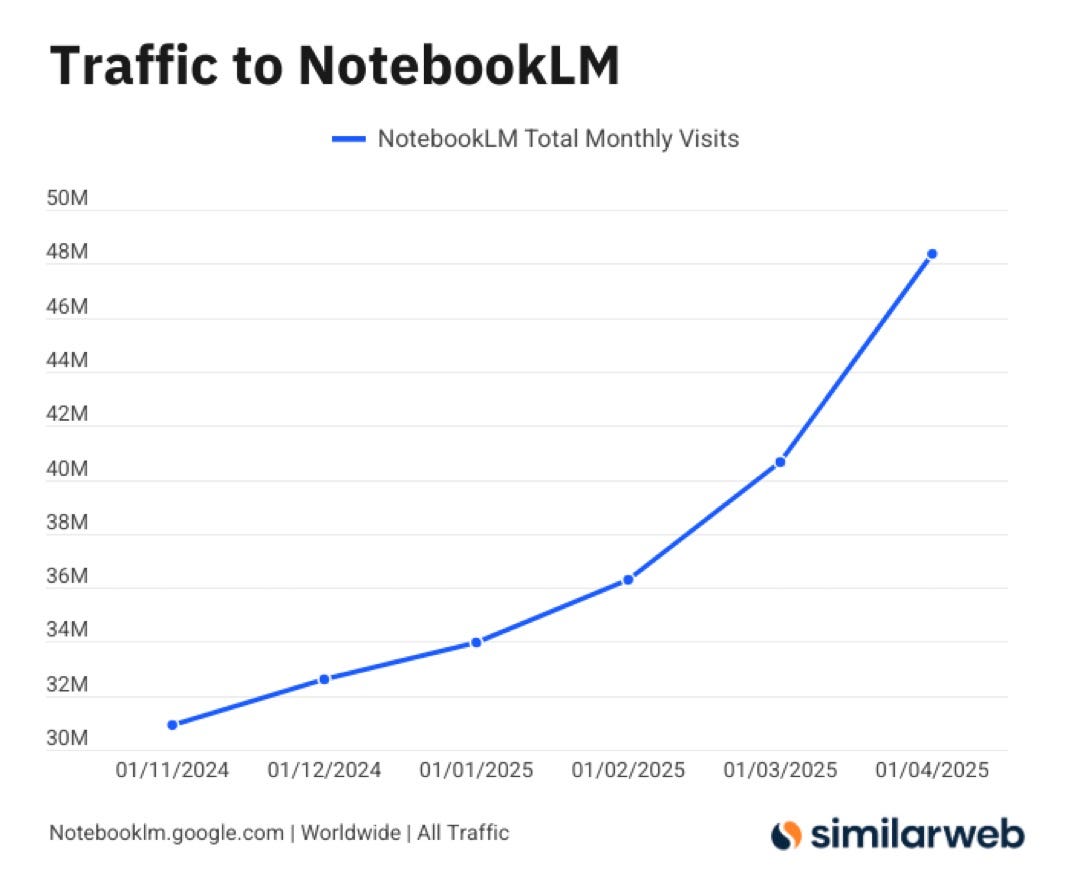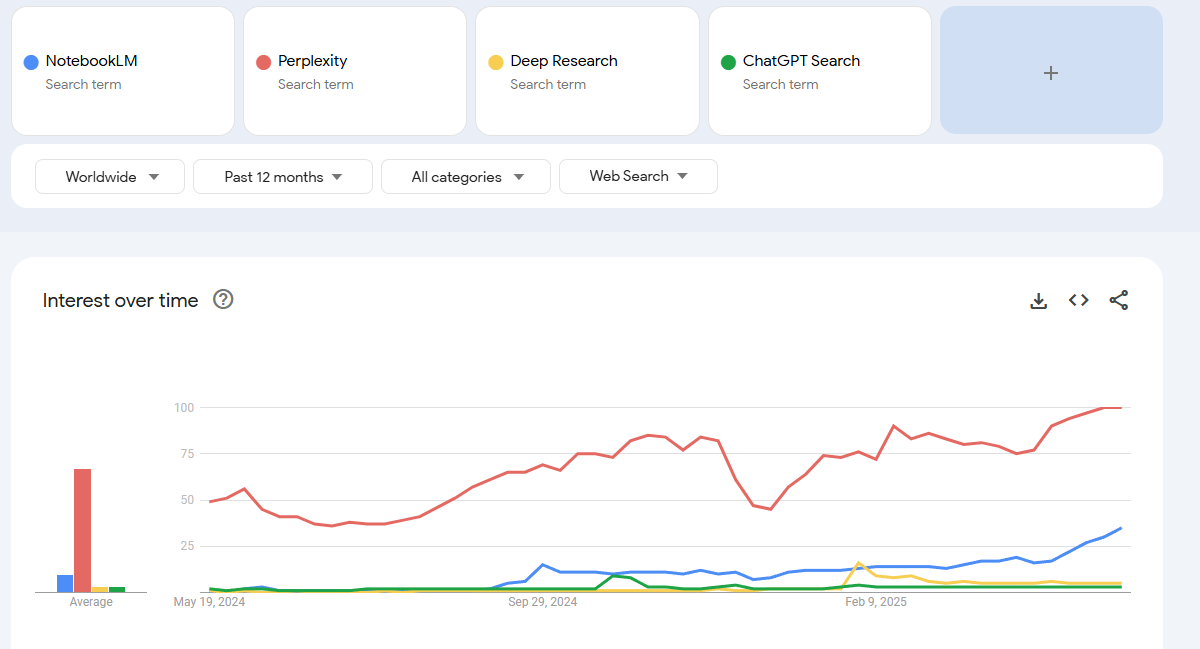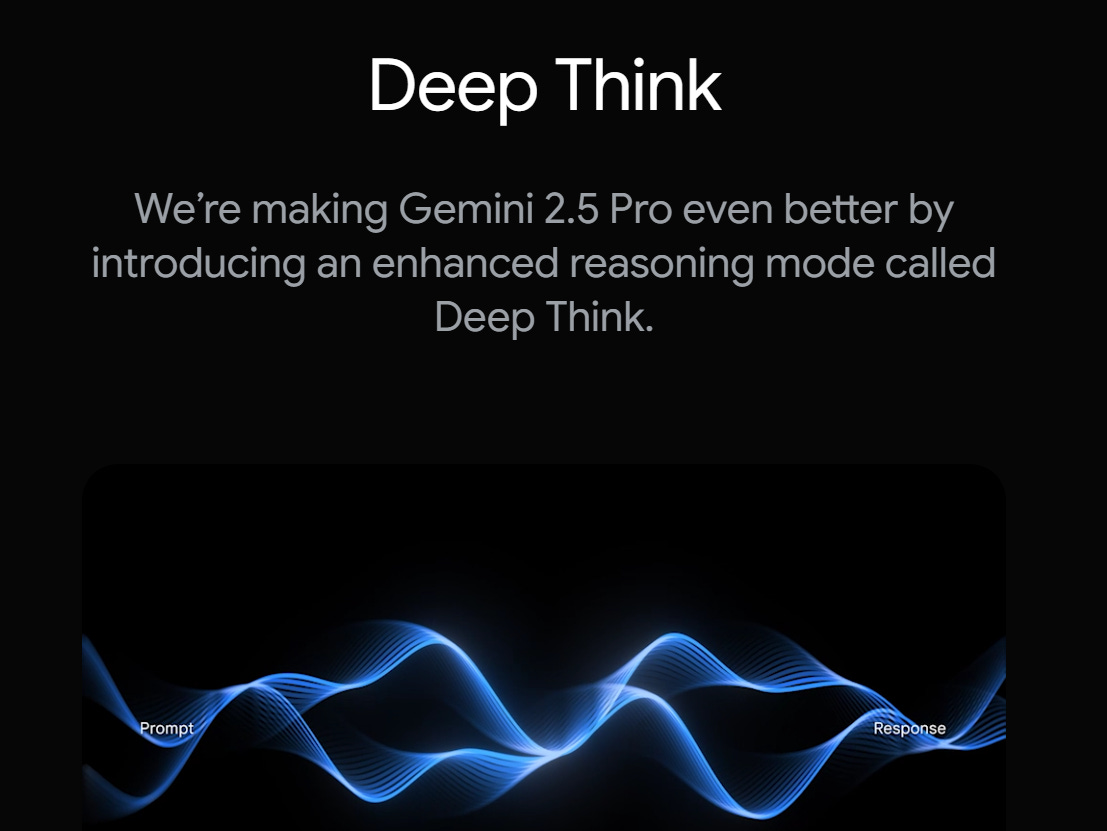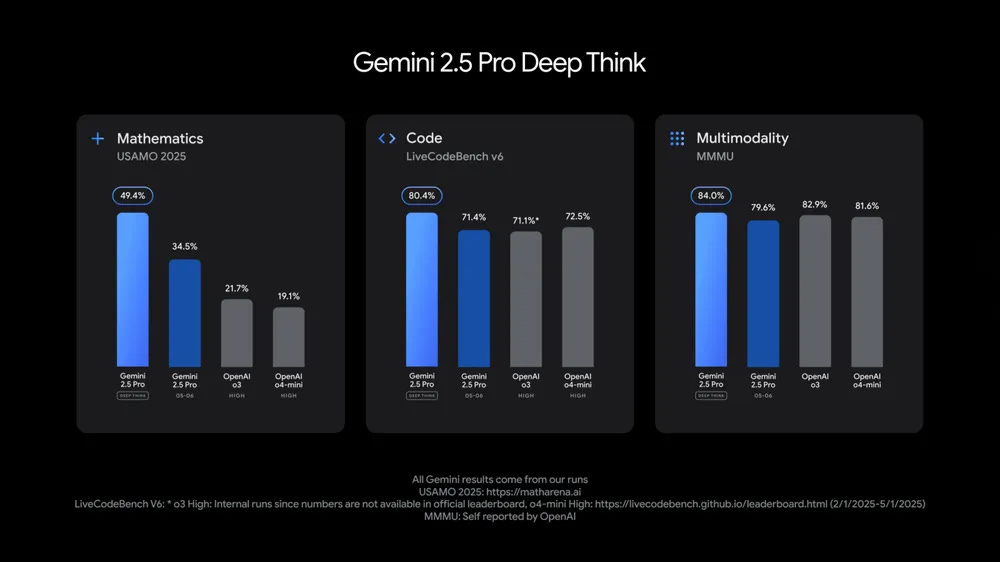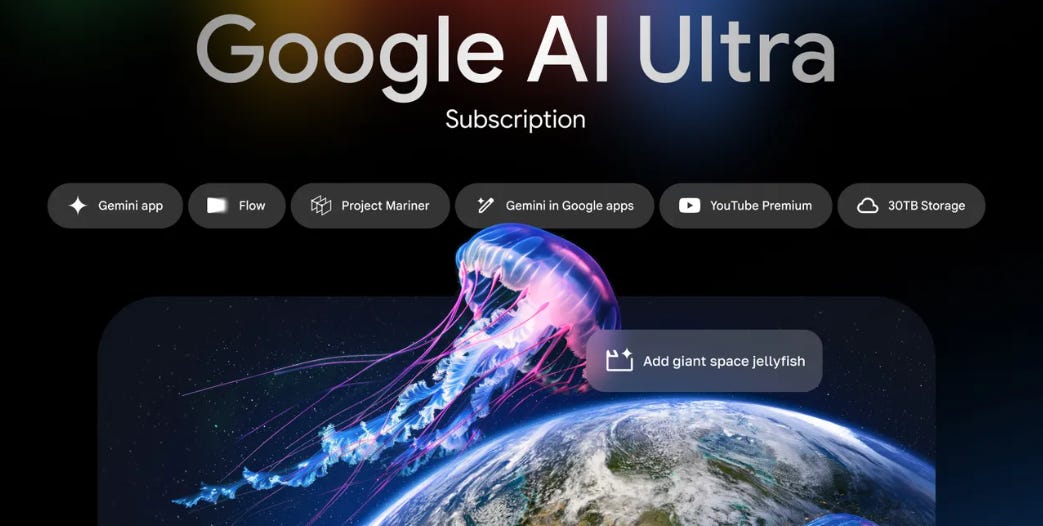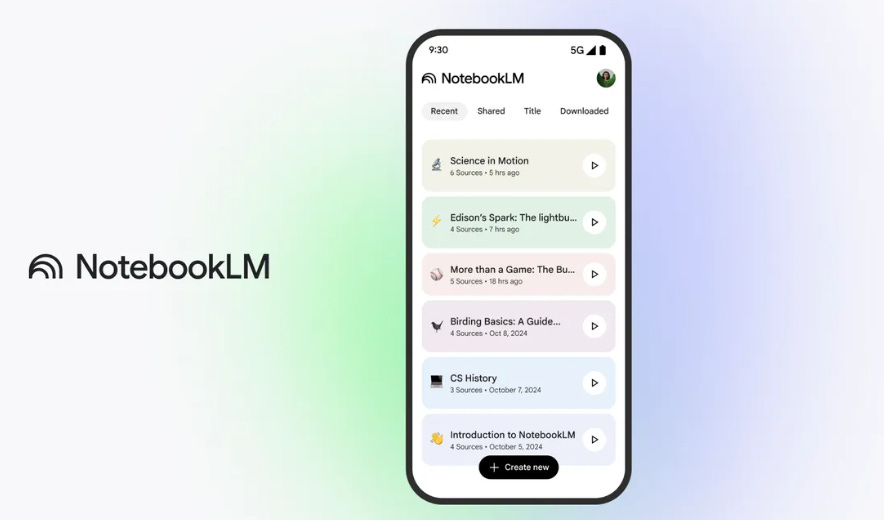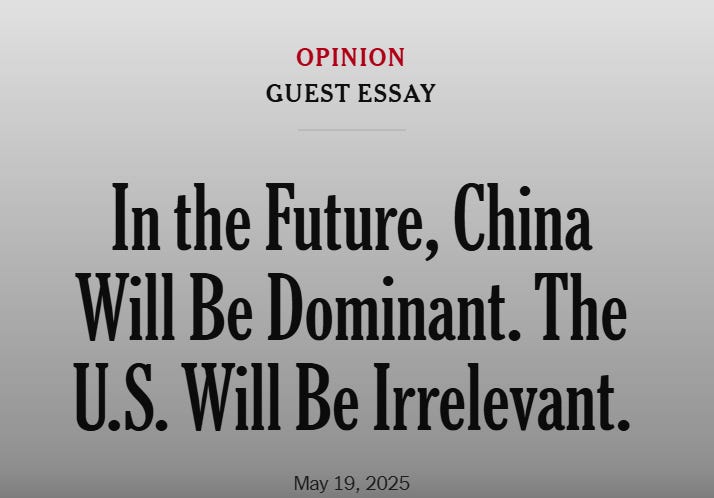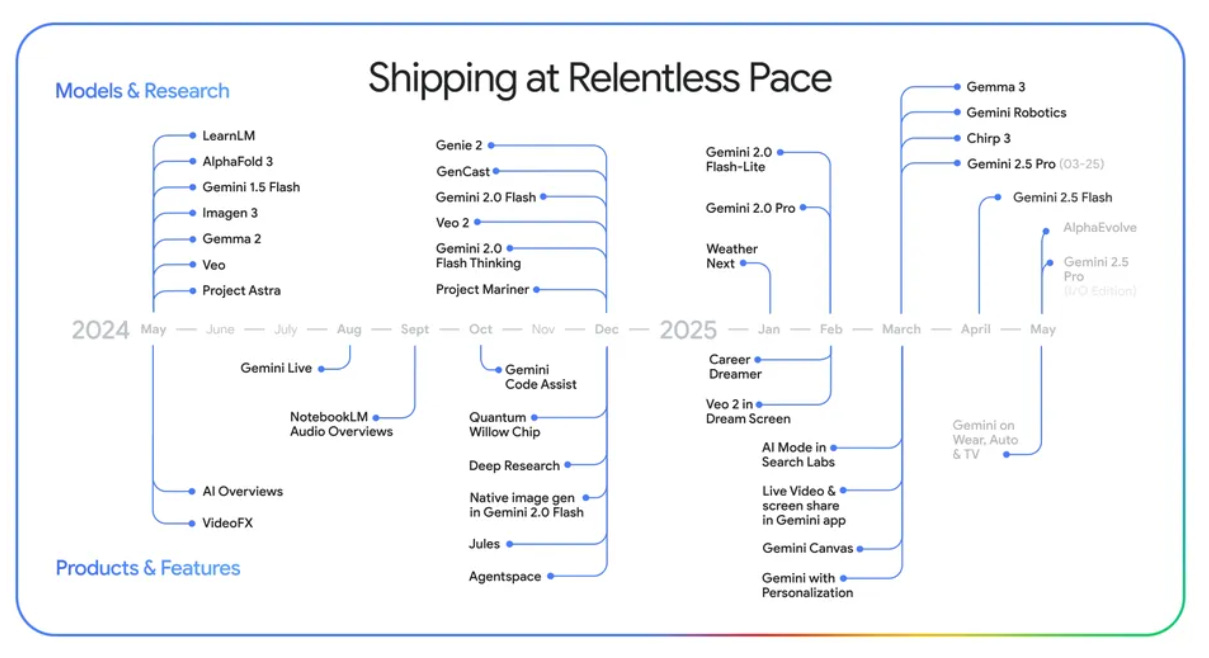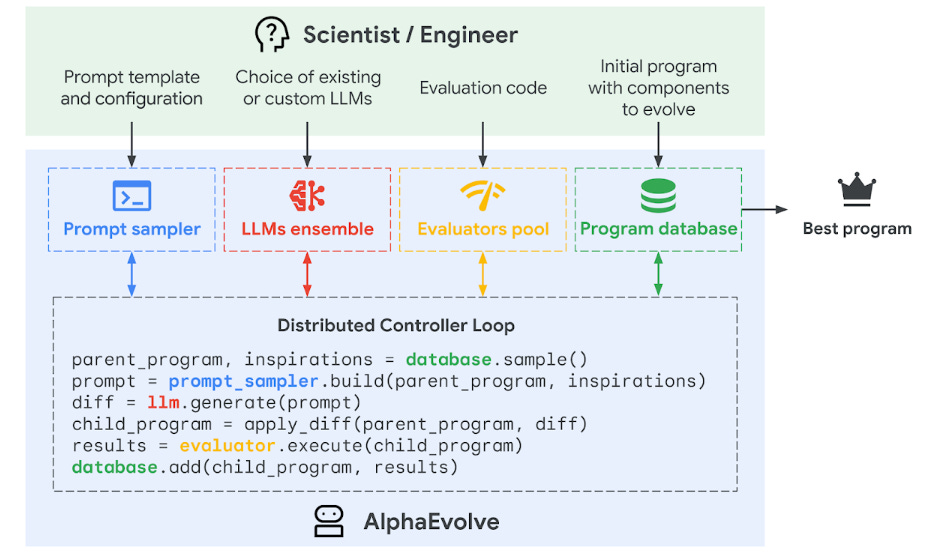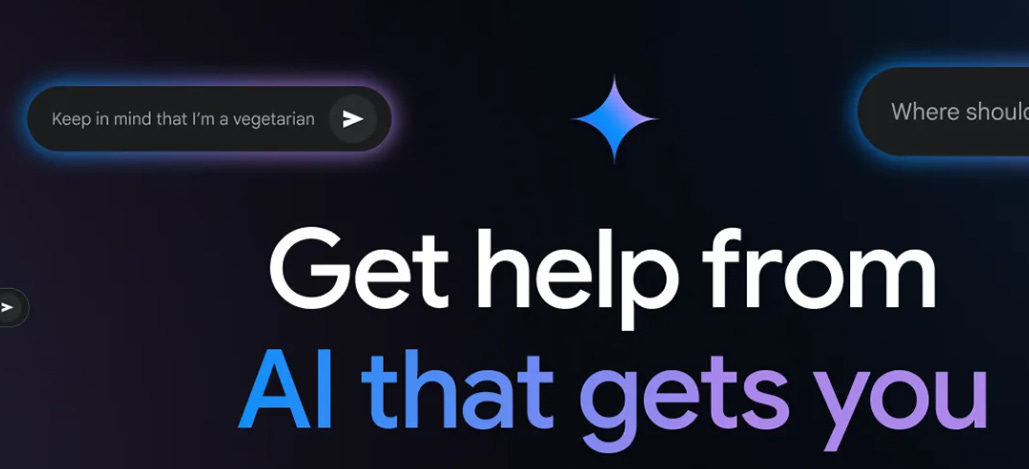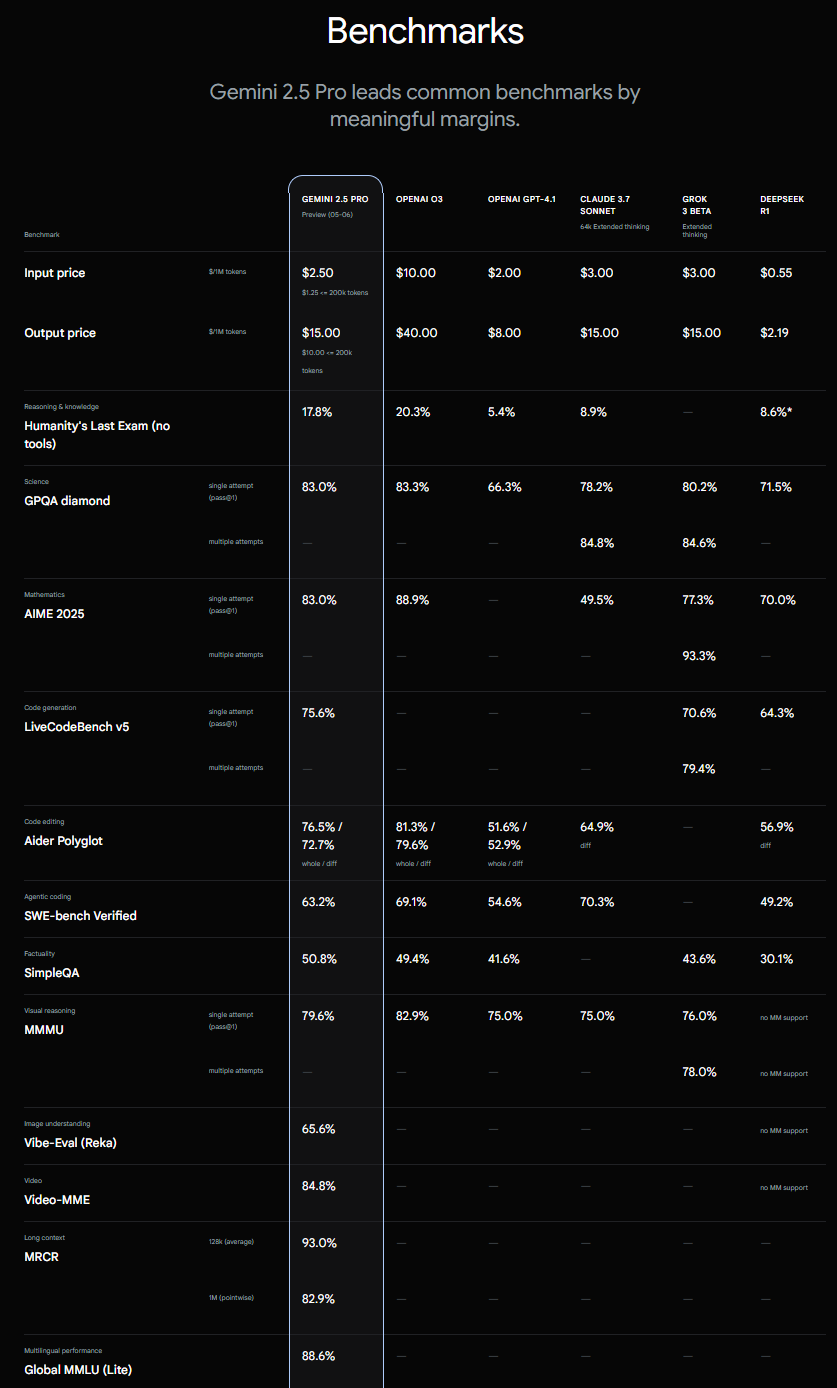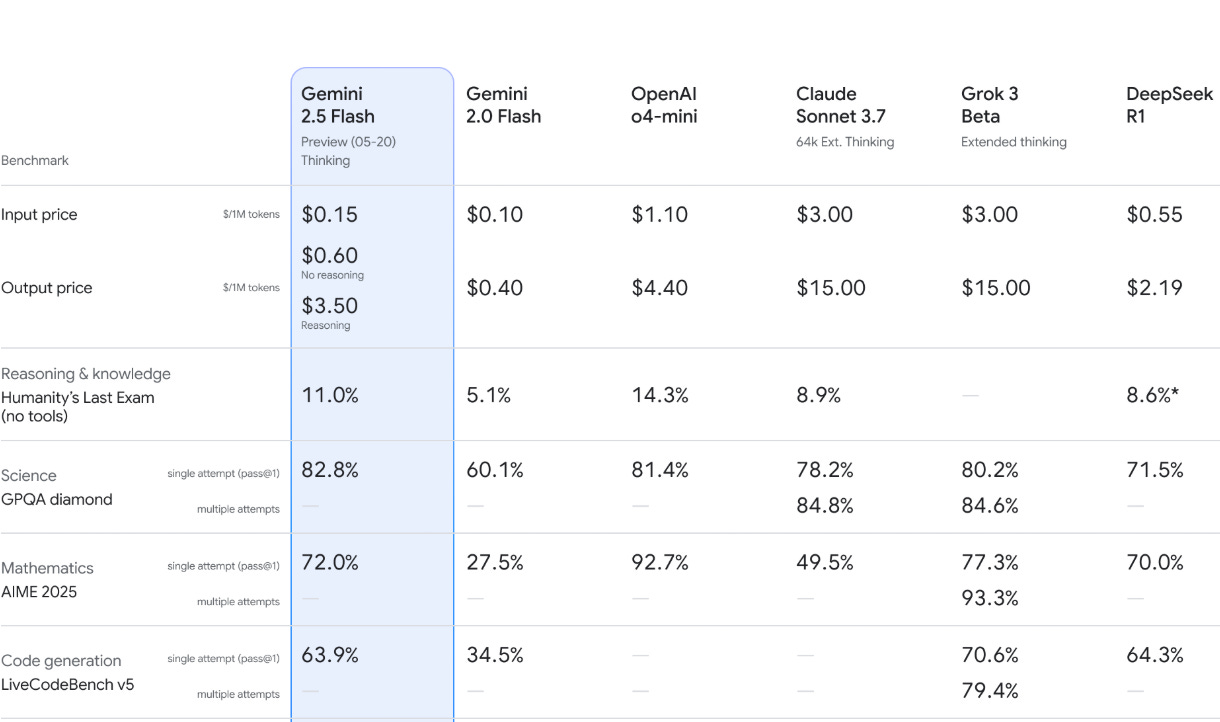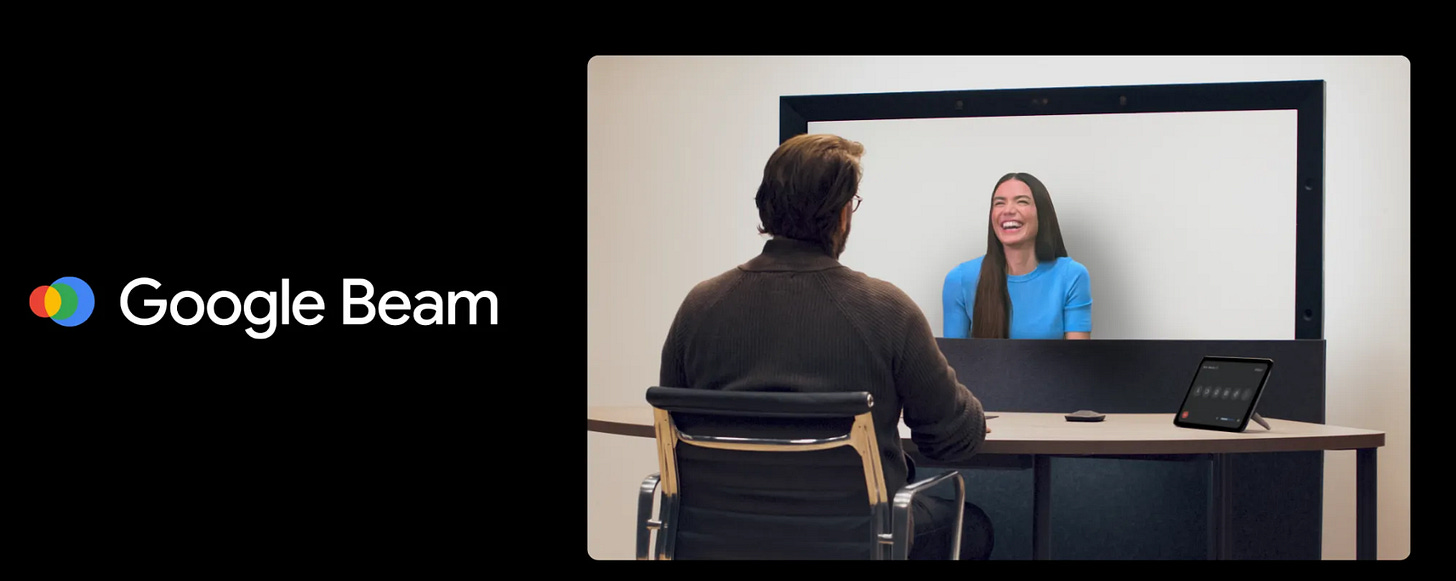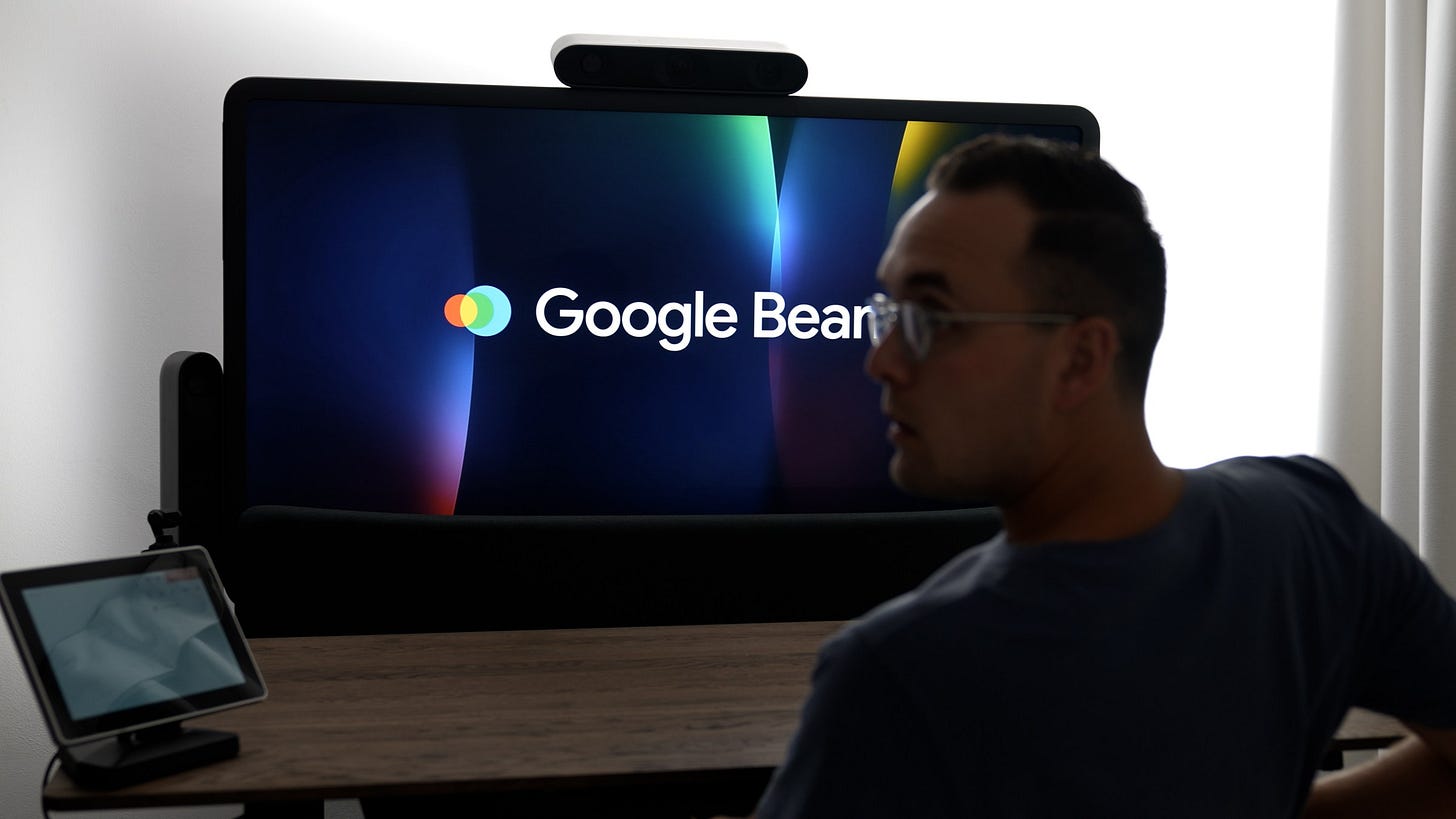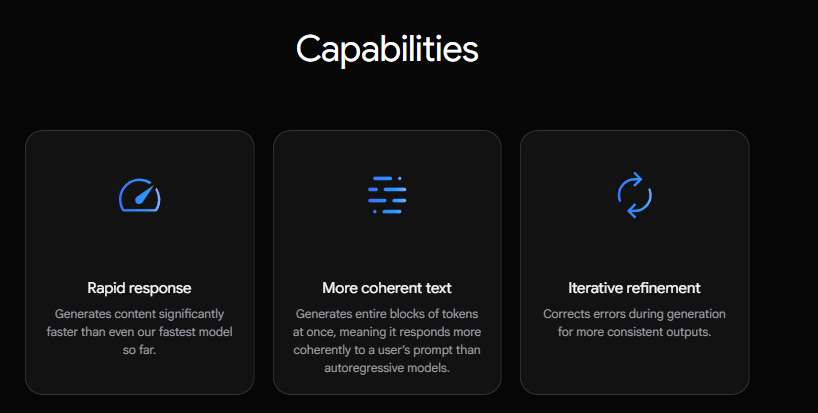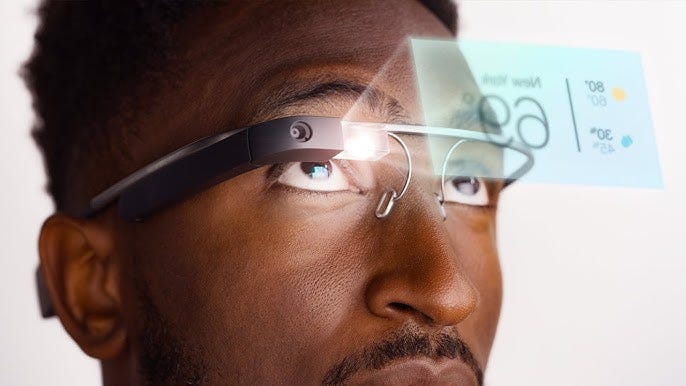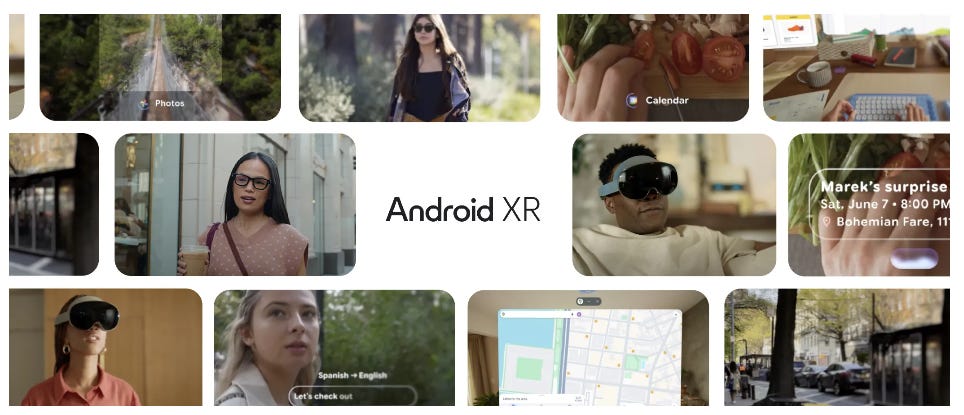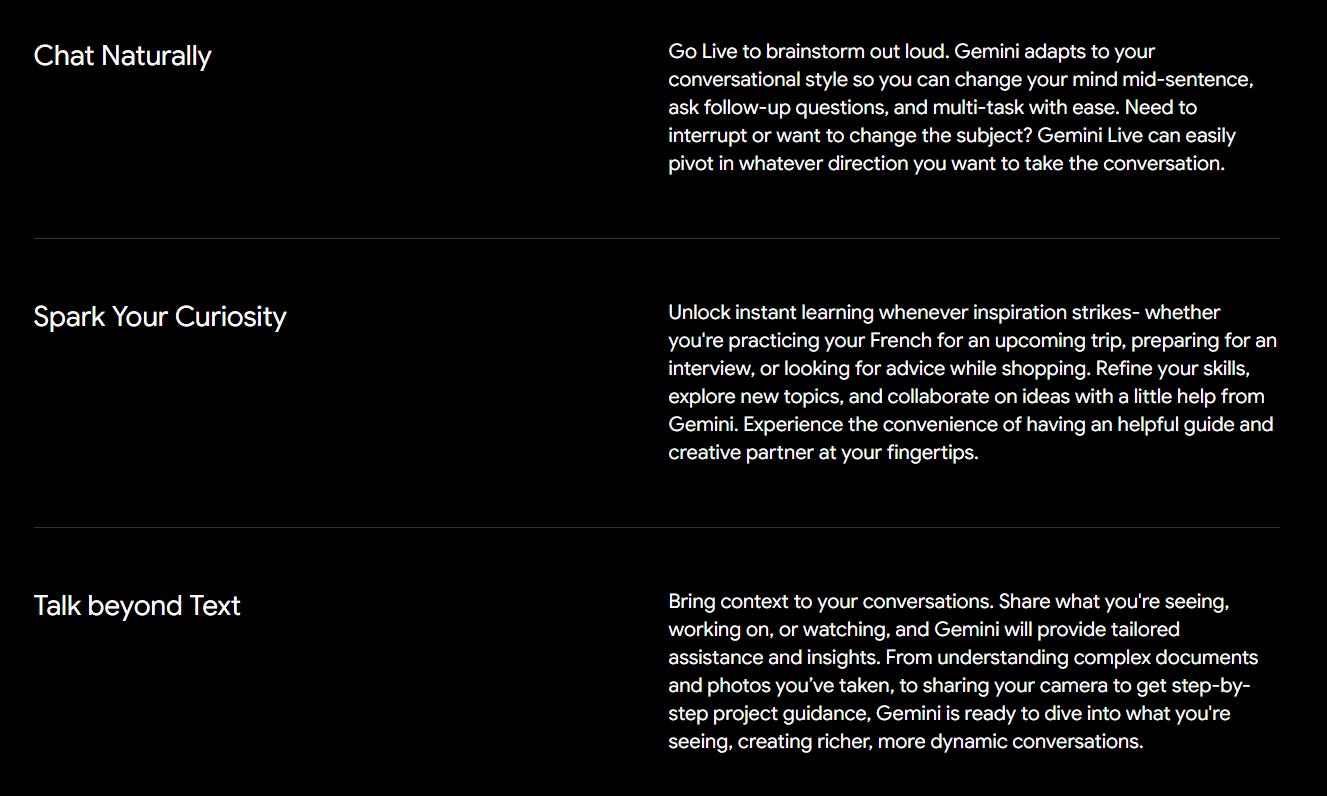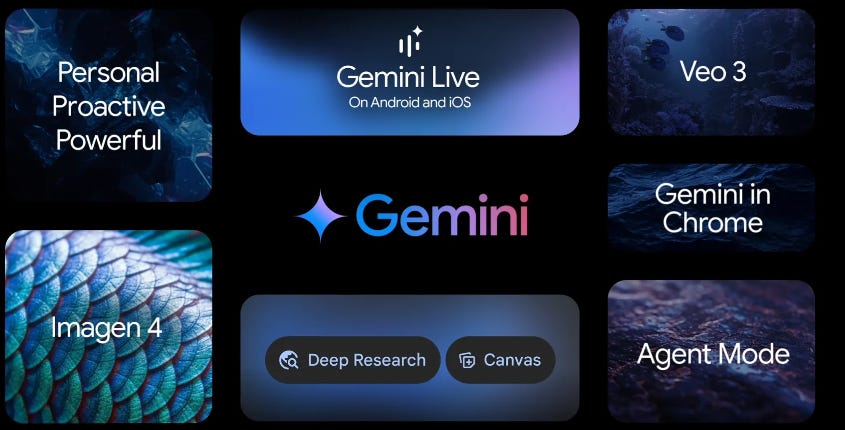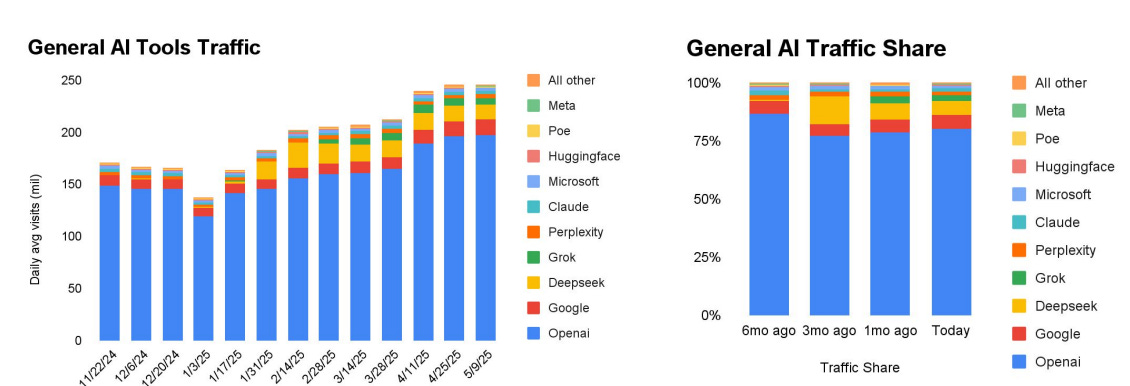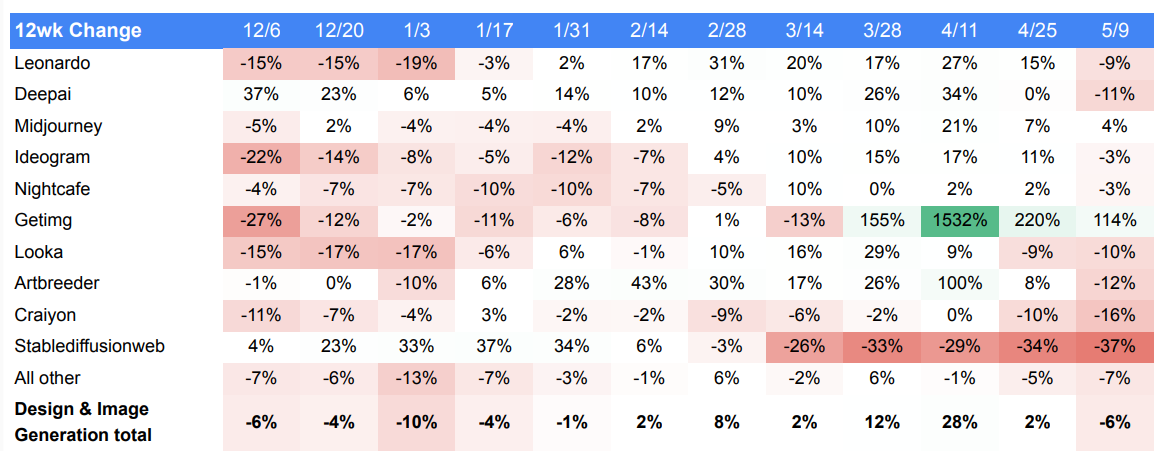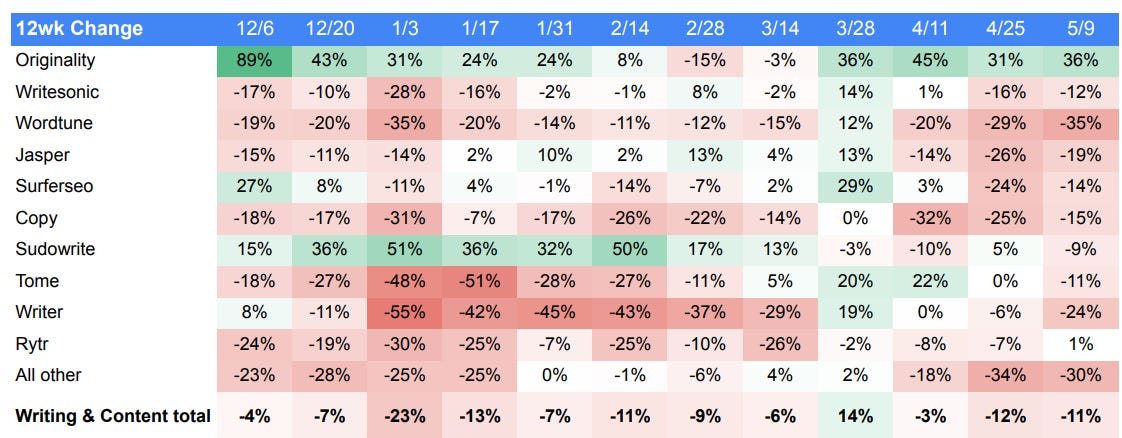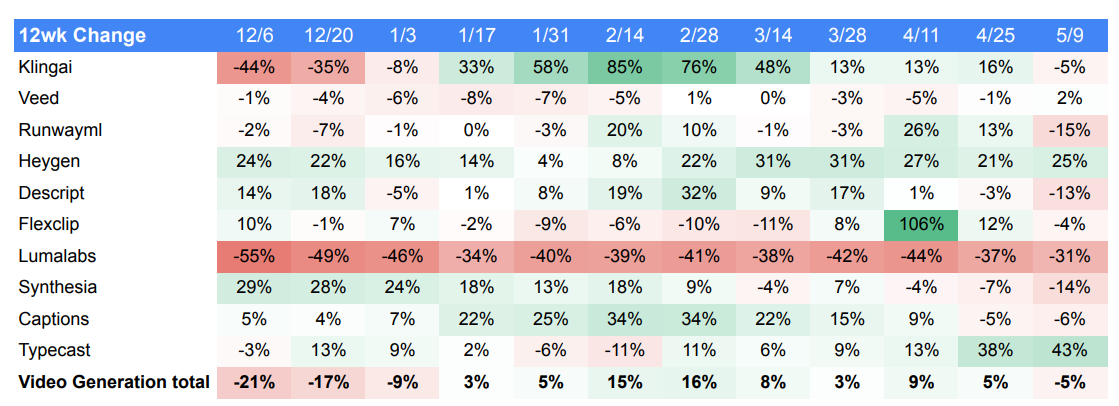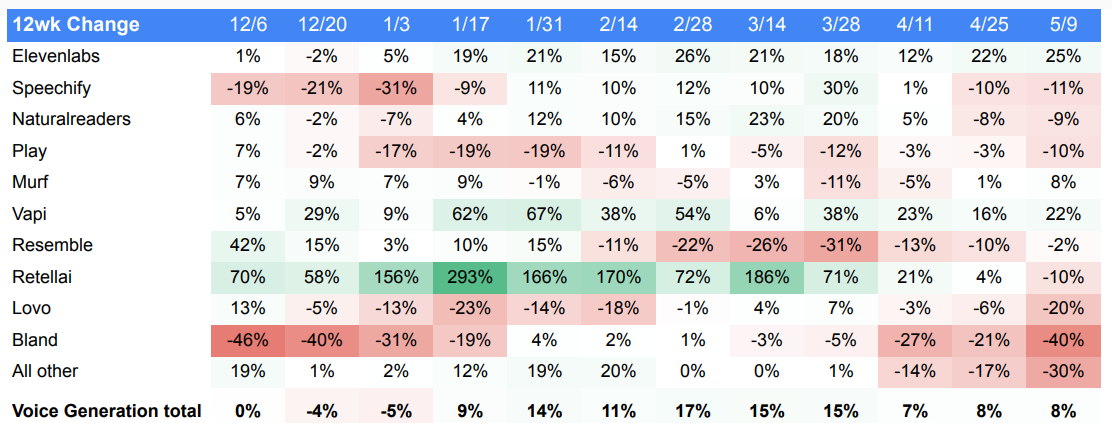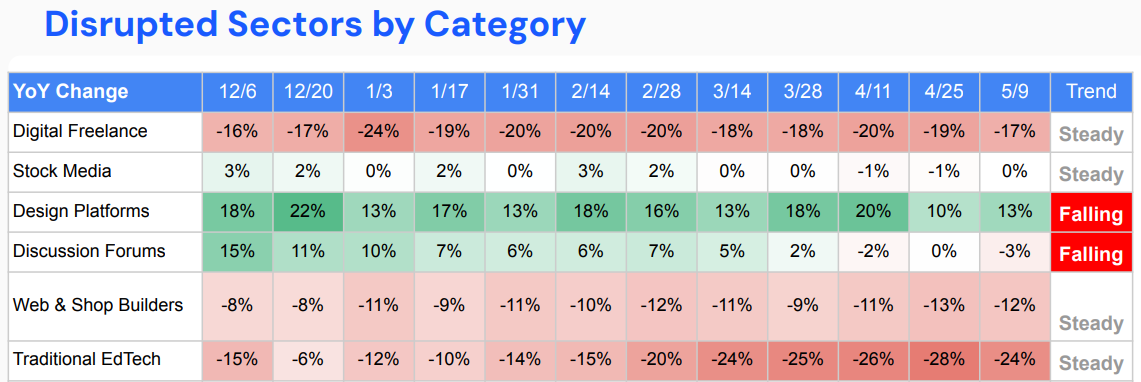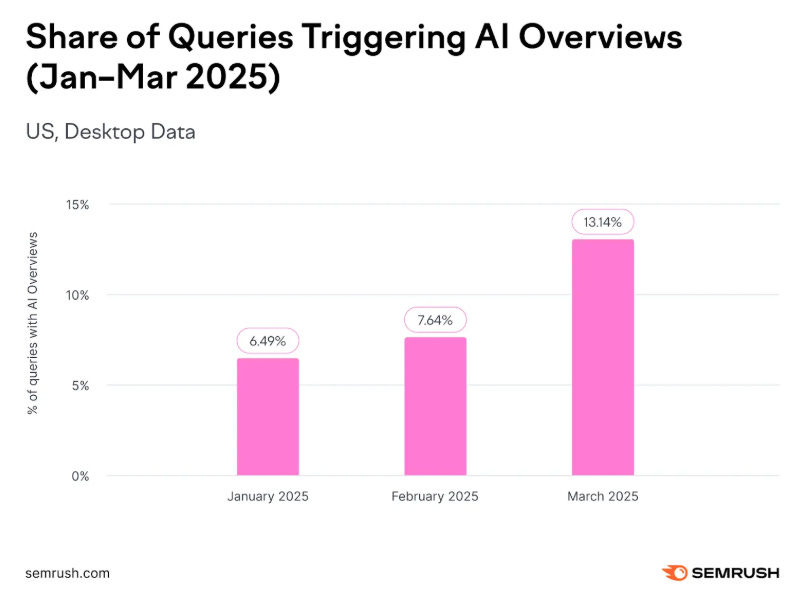Since 2022 and the advent of Generative AI, there are serious signs of the structural collapse of Apple and Google as we know them. Since Alphabet is too reliant on Search Ads, it’s the most vulnerable to disruption. Apple’s inability to innovate or compete (or even execute) in Generative AI is worrisome, a full three long years later.
In our lasts two posts we’ve covered NotebookLM’s new features and the impact of a trend Character AI (acquired by Google for $2.7 Billion) started and which ChatGPT has solidified. Watching Google’s I/O event I was struck by how hard Google has tried to lead in AI products and how much it has improved in the past 18 months doing so.
But there’s just one huge major problem: Google’s Search advertising monopoly and business model is under threat.
Long post on Google I/O revelations
Many details of why Google’s key business model is in mid-term trouble & risks being disrupted altogether
This will be extensive summary and in-depth post
While Google is innovating in new AI products, it’s not enough. It doesn’t matter how triumphant Google Overviews or the AI mode they are pushing will be, Google will fundamentally never be the same starting in 2026.
Generative AI will reshape BigTech, hyperscalers, the magnificent seven, whatever you want to call them and completely overhaul the internet. 2025 is a transition year, neither here nor there.
Consumer behavior keeps changing away from vanilla Google Search. Whether that’s ChatGPT Search, Deep Research or Google’s own AI Overviews and AI Mode.
We’ll get to some of the latest news in Google’s I/O event that showcases product announcements from across Google’s portfolio. But we have to take a minute to appreciate the big picture.
What is Deep Think?
What can Project Mariner do?
Can AI Mode save legacy Search?
Google generated nearly $200 billion in revenue from Search in 2024. But internally, they are freaking out.
Google execs believe Search will lose traffic to Gemini or ChatGPT, and urged urgent Gemini monetization, according to an internal document.
Alphabet makes the majority of its revenue just from Search Advertising. Of the $237.9 billion Alphabet generated in ad revenue in 2023, $175.0 billion, or 73.6%, came from Google Search.
If Gen AI is eating Search, Google won’t collapse overnight but it’s key business model is expected to deteriorate rapidly in the mid to late 2020s.
For now, AI Mode is just an option inside of Google Search, but pesky AI Overviews are reducing the number of clicks and thus making Google Search Ads way less effective. Meanwhile ChatGPT is taking traffic away from Google and this gets worse as their user numbers increase, not such a possibility in early 2023, but looking like a major problem in mid 2025. It’s gone from fear to reality.
Google said that AI Overviews lead to a 10% growth in the number of searchers do. But that’s not saving Google Search from ChatGPT and the fact that Deep Research products are just better and ChatGPT Search and Perplexity are more immediate and higher quality than Google Search today.
If 3/4 of your business from Search Ads is slowly dying, your entire company might be disrupted.
I expect Google Search marketshare to decline profoundly in 2026.
ChatGPT’s impact. An internal summary of takeaways from a meeting with top execs – including Liz Reid, Vidhya Srinivasan, and Nick Fox – included this key point from Fox:
“We have 3 options: (1) Search doesn’t erode, (2) we lose Search traffic to Gemini, (3) we lose Search traffic to ChatGPT. (1) is preferred but the worst case is (3) so we should support (2)” [Read document].
Unfortunately for Alphabet, as good as Google Cloud, YouTube and Google’s subscriptions are, the deterioration of Search Ads and the future of Ads itself looks very vulnerable to Gen AI as a movement.
The bulk of Google’s revenue or around $175.0 billion, is derived exclusively from its Search engine. As the internet continues to change via Generative AI and ChatGPT, it hurts Google’s ability to remain relevant and it might hurt Advertising as a whole.
The existential threat to Google has resulted in incredible Gen AI models and progress on the AI product side, nobody disputes that.
According to
- “The best approach for Google is to let its AI bets fly solo, without tying them to traditional search, as that will kill them off the bat. NotebookLM so far is the one that has more scaling potential on the application side.”
NotebookLM is a great tool, but it’s no Perplexity. As good as Google’s AI products are, they are no ChatGPT competitor.
Google One subscription service, which charges consumers for cloud storage and artificial intelligence features, recently crossed 150 million subscribers as of May 15th, 2025.
ChatGPT has a reported 400 million weekly active users. In the US alone, 67.7 million people use the platform. The platform also boasts 15.5 million Plus subscribers
ChatGPT is stealing marketshare not just from Google Search but Google’s dominance as the world’s top AI company and this has been going on for quite some time.
The idea that Google can pivot away from Search is not realistic.
Google (One) AI subscriptions can increase 50% increase since February 2024, but that doesn’t mean Google has an answer to its Search Ads problem.
Google’s experimental AI Mode does not look promising, for the future of Ads.
Google’s flurry of AI products have a lot of gimmicks that don’t address its core vulnerability to disruption.
Google says users want to dig deeper and interact with these AI Overviews, but the reality is they are using Google drastically less. Google’s entire thesis around its (Search Ads) future is flawed or just plain wrong. Then there’s the antitrust trial where they might have to divest some important products (update: they lost).
Google announced announced Deep Think, an “enhanced” reasoning mode for its flagship Gemini 2.5 Pro model.
The AI-ification of Google Search continues to accelerate but not in a good way. Google will force Search Generative Experience, or SGE, i.e. AI Overviews and AI Mode on the world in a last ditch effort to save its Search Ads monopoly.
Anthropic and now Google have copied OpenAI offering a higher tied paid subscription.
Gemini Ultra (only in the U.S. for now) delivers the “highest level of access” to Google’s AI-powered apps and services, according to Google. It’s priced at $249.99 per month and includes Google’s Veo 3 video generator, the company’s new Flow video editing app, and a powerful AI capability called Gemini 2.5 Pro Deep Think mode, which hasn’t launched yet.
AI Ultra comes with higher limits in Google’s NotebookLM platform and Whisk, the company’s image remixing app. AI Ultra subscribers also get access to Google’s Gemini chatbot in Chrome; some “agentic” tools powered by the company’s Project Mariner tech; YouTube Premium; and 30TB of storage across Google Drive, Google Photos, and Gmail.
For just $250 you get more access to Google’s best AI products.
Alphabet reported revenue of $90.23 billion, but Generative AI might make that difficult to continue heading into the 2026 to 2030 period. The company’s overall revenue grew 12% year over year, so Alphabet hasn’t hit its great decline just yet in 2025. In 2025, Google's market share in global search engines is around 89.66%, according to StatCounter Global Stats. Note good, I expect this to continue its decline. There were already signs of this change downward near the end of 2024.
Google’s Gemini AI app now has more than 400 million monthly active users, CEO Sundar Pichai said during a press briefing ahead of Google I/O 2025.
If you switch to AI Mode (it’s a tab in the search page or the Google app, like Images or News) and enter a query, you’ll get back a generated answer, based on everything in Google’s search index, with a few supporting links interspersed throughout. The user experience feels a little like Gemini or any other chatbot, but you’re interacting with a Search-specific model, which means it’s more able to tap real-time data and interact directly with the web.
But who wants a chatbot in search outside of ChatGPT?
NotebookLM pre I/O announced its new app.
Alphabet is trying to scale up Google Cloud and AI based subscriptions faster than it loses marketshare in Search. Google’s YouTube advertising revenue came in just short of analysts’ expectations at $8.93 billion. A far cry from is Search Ads revenue (not even 10%).
Google wants to vibe code? Why not. Stitch turns prompts and reference images into functional, ready-to-export UI designs. The Gemini 2.5 Pro-powered “Stitch” experiment is available on Google Labs.
Astra is a multimodal, all-seeing bot that is still sadly only available to groups of testers. In development for years, it’s demonstrating just how slow or not agile Google is in actually executing major AI products.
Google is often vague and provactive when it’s not actually delivering. Astra represents instead is a collection of Google’s biggest, wildest, most ambitious dreams about what AI might be able to do for people in the future. Greg Wayne, a research director at Google DeepMind, says he sees Astra as “kind of the concept car of a universal AI assistant.”
Google I/O 2025 was certainly more eventful than usual, but in the myriad web of Google’s AI products is also the fact that this is a company in decline and too reliant on Search Ads.
“The DOJ argued that Google struck anticompetitive deals with Apple and other companies for prime placement of its search engine. Google maintains that its dominant market share is the result of a superior product. The DOJ says options to resolve the situation include breaking up Google to separate products like Chrome, Search, and Android, but it may be a while until we hear about their full plan.”
Generative AI might disrupt the future of advertising, and nobody is talking about it. The DOJ has proposed that Google divest AdX and DFP, the core components of Google Ad Manager. It also wants Google to share and enable access to data for publishers and advertisers and to prohibit Google from using data to preference its own products.
AdX
DFP
Chrome
For the record I don’t find Meta is executing in Generative AI either. Project Behemoth is late, and China has overtaken Llama in Open-weight AI models. DeepSeek and Qwen are now way ahead of Meta in open-source models and it should concern U.S. AI Supremacy pundits.
made an argument in the NYT about U.S. in technology, but it’s already too late. When OpenAI and its spin-offs like Anthropic disrupt BigTech, it helps China. Ironically Microsoft, Google and Amazon have invested and funded the very companies that will likely disrupt them in some key ways. Don’t say I didn’t warn you.
I find Google Labs very goofy, but let’s continue with Google I/O Products.
Google is bringing an “Agent Mode” to the Gemini app and making some updates to its Project Mariner tool, CEO Sundar Pichai announced at Google I/O 2025.
Pichai also shared details on a feature called Teach and Repeat. “This is where you can show your task once, and it learns a plan for similar tasks in the future.” Project Mariner will be available “more broadly” this summer, he said.
Circa 2024 to mid 2025.
An “experimental” version of Agent Mode will be “coming soon” for subscribers, Pichai said.
Google says that its new AI agent evolves algorithms for math and practical applications in computing by combining the creativity of large language models with automated evaluators. Some are claiming this is the birth of recursive self-improving AI, a fairly far fetched conclusion by the way.
The best explanation of it I could find it actually here via
.
AlphaEvolve displays the progression from discovering algorithms for specific domains to developing more complex algorithms for a wide range of real-world challenges. Google says it expects AlphaEvolve to continue improving alongside the capabilities of large language models, especially as they become even better at coding.
As BigTech boasts more of their code is written by AI (now at 20-30%), they are reducing the number of engineers and even product managers.
AlphaEvolve is cool but it doesn’t signal Recursive self-improvement in AI is suddenly a real thing in my opinion. Google DeepMind has a long history in hyping everything from AlphaGo, to AlphaZero but they had a limited impact on the world.
You cannot take Google’s claims at face value, PR and reality are not the same thing. Google claims AlphaEvolve enhances “the efficiency of Google's data centers, chip design and AI training processes — including training the large language models” underlying AlphaEvolve itself. The reality is Google is unlikely to even be able to save its Monopoly in Search Ads, the core and key element of its entire business model! The contrast with these things is just shocking.
Google claims Gemini with personalization will be able to use your Google apps, starting with your Search history, to deliver contextually relevant responses that are adapted to your individual interests. Meanwhile the people who left the NotebookLM have a personalized audio overviews idea of their own (called Huxe).
With Gemini 2.0 Flash Thinking model, personalization allows Gemini to connect with your Google apps and services, starting with Search, to provide responses that are uniquely insightful and directly address your needs. With your permission, Gemini can now tailor its responses based on your past searches, saving you time and delivering more precise answers. In the coming months, Gemini will expand its ability to understand you by connecting with other Google apps and services, including Photos and YouTube. This will enable Gemini to provide more personalized insights, drawing from a broader understanding of your activities and preferences to deliver responses that truly resonate with you.
Google has made incredible progress on its models in the past six months, especially in 2025. Claude 3.5 Opus and GPT-5 will of course be coming soon.
For all of Alphabet’s woes in the future of Search Ads and divesting some of its advertising products, they have doubled down on Generative AI and surpass all the other BigTech companies in leading the movement of AI. The same cannot be said for Apple, Amazon or even Meta and Microsoft. Google has been way more agile in AI product innovation and LLMs.
Google
OpenAI
Anthropic
Experimenting with their products likely produces the most value and lowest hanging fruit for beginners. I would stick clear of Meta, Microsoft and other lesser known AI startups for the most part because they just don’t make bleeding edge models.
The rise of ChatGPT presents a significant threat to Google’s Search business, offering users a new, more interactive way to access information on the web. OpenAI’s ChatGPT momentum is tremendous and Google’s lack of being customer centric with Search Ads has cost them in reputation and monopoly exploits of their users. People just prefer OpenAI to Google. There’s no way around this in 2025. In the future of advertising as Google’s marketshare degrades, people might prefer Meta to Google for Ads.
What people don’t realize? Google’s desktop PC Search share is now below 80% and falling fast. [source].
Google’s desktop search marketshare is worrisome: Currently sitting at 79.14%, Google had 87.65% share as recently as May 2023.
When Google’s mobile search begins to decline, likely in 2026, it will mark the beginning of the end for Google’s monopoly on Search Advertising. And it will never come back - that era of the internet will be over.
Google’s Deep Research and now Deep Think are really good products.
Google says Deep Think "uses new research techniques [that enable] the model to consider multiple hypotheses before responding."
In terms of benchmarks, Deep Think scored an 84% on multimodal reasoning test MMMU.
Deep Think is easily my winner for most innovative things I learned about Google’s AI at I/O 2025. But Google Beam sounds very cool!
Project Starline enabled remote conversations that felt remarkably like being in the same room, all without the need for specialized glasses or headsets.
Today, we're announcing that Project Starline is evolving into a new 3D video communication platform: Google Beam.
Is Google Beam a zoom-killer? Will we use it instead of Google Meet or Teams? Time will tell.
Beam uses a light field display and six cameras to render a volumetric, real-time 3D version of the person on the other end of a videocall. There’s no headset, no weird glasses. Just a chunky display, a Chrome OS-powered compute puck the size of a DVD player, and a bespoke AI model working with Google Cloud in the background to stitch it all together.
Google is now focused on making Beam a real alternative to Zoom or Meet.
Alex Heath really covered Google Beam well.
Beam uses a combination of software and hardware, including a six-camera array and custom light field display, to let a user converse with someone as if they were in the same meeting room.
An AI model converts video from the cameras, which are positioned at different angles and pointed toward the user, into a 3D rendering.
Google claims people feel less “fatigue” using Beam than alternatives. Google also claims that Beam is capable of “near-perfect” millimeter-level head tracking and 60-frames-per-second video streaming, for whatever it’s worth.
Only Google Ultra users will get access to Project Mariner. U.S. subscribers to Google’s new $249.99-per-month AI Ultra plan will get access to Project Mariner. That sounds expensive.
Google also says it’s bringing Project Mariner’s capabilities to the Gemini API and Vertex AI, allowing developers to build out applications powered by the agent.
Google also says it’s significantly updated how Project Mariner works, allowing the agent to take on nearly a dozen tasks at a time.
Project Mariner competes with other web-browsing AI agents, such as OpenAI’s Operator, Amazon’s Nova Act, and Anthropic’s Computer Use.
Operator (OpenAI)
Nova Act (Amazon)
Computer Use (Anthropic)
Google is deeply invested in agentic AI, defining it as AI models that can understand the world, think strategically, and take actions on behalf of users with supervision.
Google also made some bold claims about adoption of AI at Google I/O 2025.
And I quote:
“This time last year, we were processing 9.7 trillion tokens a month across our products and APIs. Now, we’re processing over 480 trillion — that’s 50 times more.
Over 7 million developers are building with Gemini, five times more than this time last year, and Gemini usage on Vertex AI is up 40 times.
The Gemini app now has over 400 million monthly active users. We are seeing strong growth and engagement particularly with the 2.5 series of models. For those using 2.5 Pro in the Gemini app, usage has gone up 45%.”
In the coming months, Google says users will be able to access Project Mariner in AI Mode, the company’s AI-powered Google Search experience.
Gemini Diffusion is an ultra-fast new AI model. Gemini Diffusion is a “state-of-the-art” on certain coding and math tasks — leveraging parallel generation to achieve low latency.
It generates answers five times faster than Google’s Gemini 2.0 Flash-Lite model while matching its programming performance.
Google says that Gemini Diffusion is currently testing with a small group.
Google says its diffusion models will enable users greater control, creativity, and speed in text generation.
Warby Parker shares surged about 16% after Google announced a smart glasses partnership on Tuesday. Google has committed up to $150 million as part of the agreement. Google is down 13% so far this year as a stock, well below its BigTech peers.
Apparently, the Warby Parker and Google alliance will rival that of the partnership between Facebook-parent Meta and EssilorLuxottica, the maker of Ray-Ban.
Android XR will include Google’s Gemini AI assistant that users can speak with to control their device.
Android XR glasses will work in real-world scenarios, including messaging friends, making appointments, asking for turn-by-turn directions, taking photos and more.
Equipped with a camera, microphones and speakers, these glasses work in tandem with your phone, giving you access to your apps without ever having to reach in your pocket.
During a sneak peek demonstration at I/O 2025 on May 20th, the company showed how these glasses could essentially become an informational superpower when worn.
Empowered by Gemini, a user can receive text messages from friends, with a display appearing semitransparent, overlaid in their vision. They can also send messages, make appointments, ask for turn-by-turn directions – replete with a map or arrows – and take photos.
Android XR smart glasses will go head to head with Meta’s $10,000 Orion concept, along with whatever OpenAI comes up in AI devices.
Google has been fairly secretive over its Android XR smart glasses, and he promises seem over the top.
Google is bringing real-time AI camera sharing to Search. What does that mean?
Google announced two new ways to access its AI-powered “Live” mode, which lets users search for and ask about anything they can point their camera at. The feature will arrive in Google Search as part of its expanded AI Mode and is also coming to the Gemini app on iOS, having been available in Gemini on Android for around a month.
Searching real spaces with the camera
“Talk with Gemini about anything you see”
Google is now bringing that functionality directly into Search’s new AI Mode, along with Google Lens.
By tapping the “Live” icon, users will be able to share their camera feed with Search and ask direct questions about what’s in front of them.
The feature, which is branded Live Search, isn’t arriving until “later this summer” and will be available in beta to Labs testers first.
Live Search is getting better with Gemini. Google announced a lot at Google I/O 2025. But didn’t address their fundamental business problems or how they will solve them.
Veo 3 is expensive and high-class.
Superior visual quality
Excellent real-world physics
Prompt following like never before
Veo 3 is Google’s latest state-of-the art video generation model by DeepMind. With Veo 3, you can generate videos with: Improved quality when generating videos from text and image prompts. Speech, such as dialogue and voice-overs. Audio, such as music and sound effects.
The Demo that Google DeepMind promoted: [see more examples here]
Gemini Live with camera and screen sharing, is now free on Android and iOS for everyone, so you can point your phone at anything and talk it through.
Imagen 4, our new image generation model, comes built in and is known for its image quality, better text rendering and speed.
Veo 3, our new, state-of-the-art video generation model, comes built in and is the first in the world to have native support for sound effects, background noises and dialogue between characters.
Deep Research and Canvas are getting their biggest updates yet, unlocking new ways to analyze information, create podcasts and vibe code websites and apps.
Gemini is coming to Chrome, so you can ask questions while browsing the web.
Students around the world can easily make interactive quizzes, and college students in the U.S., Brazil, Indonesia, Japan and the UK are eligible for a free school year of the Google AI Pro plan.
Google AI Ultra, a new premium plan, is for the pioneers who want the highest rate limits and early access to new features in the Gemini app.
2.5 Flash has become our new default model, and it blends incredible quality with lightning fast response times.
LearnLM: Learn in newer, deeper ways with Gemini
Google I/O 2025: From research to reality
Google’s NotebookLM is getting Video Overviews
Introducing Google AI Ultra: The best of Google AI in one subscription
“Agentic Checkout” concept from Google I/O
Imagen 4: is DeepMind’s best text-to-image model yet, with photorealistic images, near real-time speed, and sharper clarity — to bring your imagination to life.
Gemini 2.5: Google’s most intelligent models are getting even better
YouTube video: Google I/O 2025 Highlights | Everything Announced
Learn in newer, deeper ways with Gemini
Anyways I hope that helped you get a quick summary and handle on Google I/O and what they are doing in AI.
As for Google’s future in Search I have a few reports for you to go over if you want to seriously understand what’s going on. Why might ChatGPT be a threat to Google? It gets 5.19 Billion visits a month, and 15% of the total users are American. That means global consumers who have downloaded the app (more than TikTok this year), will be passing up on Google search.
Another threat to Google Search usage is the surprisingly good product of xAI, Grok 3’s Deep Search. That many use now instead of Google Search or even Perplexity, and ChatGPT Search. I was using Genspark before their pivot to a Super Agent toolbox. In 2025, many will use Deep Research instead of Google Search for serious searches and use ChatGPT Search for more casual searches, all of which are lowing our usage of Google search, according to the data, especially on desktop (where the majority of us still work). If Alphabet has to divest Chrome, it will be a bombshell for their Search Ads marketshare impacting their bottom lines and for shareholders.
For these reasons, Google’s stock is likely to be a hot potato starting in 2026 in a major way. GOOG 0.00%↑ where their current market cap is $2 Trillion. It could plummet in the months or the years ahead. This is why I’m saying that Google’s Search Ads is slowing dying. The writing isn’t just on the wall, it’s Generative AI’s fault. There’s not much evidence by the numbers AI Overviews or AI Mode will change that reality.
AI Global Sector Trends Report by SimiliarWeb.
SemRush AI Overview Study
AI Overviews are on the rise: 13.14% of all queries triggered AI Overviews in March 2025. That’s up from 6.49% in January 2025.
Informational content is most likely to trigger AI Overviews: 88.1% of queries that trigger an AI Overview are informational.
The number of navigational queries that trigger AI Overviews has doubled since January — from 0.74% to 1.43%.
In the AI Overview crosshairs—Science, Health, and Society:
Science (+22.27%), Health (+20.33%), People & Society (+18.83%), and Law & Government (+15.18%) are the industries experiencing the largest share growth of AI Overviews—indicating a rapid shift in how users get answers in these high-trust, information-dense categories.Zero-clicks: On average, keywords that trigger AI Overviews show higher zero-click behavior—likely due to their informational nature. But our same-keyword analysis shows zero-click rates actually declined slightly after AI Overviews were introduced.
This means AI Overviews is leading to less clicks for advertisers than traditional legal Search did, leading to less value. AI Overviews and AI Mode destroys how the web used to work with websites getting traffic from Google. Advertising in these format isn’t very promising. Nor are Ads in Perplexity or ChatGPT yet to be honest. An alternative conclusion here is Generative AI will disrupt digital advertising as we knew it.
We’ll also be searching less on TikTok, YouTube, Reddit and other places when we can do it natively in ChatGPT, Claude, Meta AI app, and other Gen AI interfaces, including Gemini itself. Generative AI is likely to impact Google’s monopoly in Search Ads. Also due to the lawsuit, Apple is exploring the possibility of moving away from Google as its default search engine in Safari and potentially integrating AI-powered search options.
All of these changes permanently lesson our reliance on legacy Google search and the dominant business model Alphabet had for so long. This as Meta and Amazon are likely to grow their advertising businesses faster during these periods. I expect we’ll see this in Google’s earnings in 2026.
Google won’t be able to move many Google search users to Gemini or its other Gen AI tools. Many of those will permanently flee to ChatGPT and other solutions like Grok, DeepSeek and so forth. This means Google will be left with a smaller user base of the next internet that Generative AI is bringing us to.
Note that Gen AI could also eventually disrupt Meta’s advertising business model as well, although a little later down the line.
ChatGPT is disrupting how the internet is going to work, full stop.
The more global users use AI, the less they will be using Google, because their habits will change. Why get a stub from AI Overviews when ChatGPT already provides all they need, the incentive to even go deeper with AI Mode will be more limited. Eventually this spills into Google’s monopolistic Ad business, namely Search Ads. Unfortunately this is the bulk of revenue Alphabet makes across its suite of tools.
Companion chat tools are also more immersive for young people, meaning they are spending less time on Google. It’s not just ChatGPT, it’s actually Character.AI and its various clones, which leads us to the conclusion that Generative AI interfaces are harming the overall future of Search Advertising.
Websites aren’t just seeing less traffic from Google due to AI Overviews, they are seeing less traffic because Google itself is getting less web traffic. This is the first sign that Generative AI is reshaping the entire internet, first slowly and gradually, then all at once. OpenAI getting into social apps is likely to accelerate that trend. xAI merging with X is also a sign of that direction. The social internet is merging with Generative AI usage. While Google sends AI Overview requests on occasion to YouTube, even that will cannibalize its Search Ads business. Like we saw before, YouTube advertising is a relatively small business.
As OpenAI’s GPT-5 heralds a more unified experience within ChatGPT, so tool will these unified AI interfaces where you can do anything become more dominant. Only a few will survive:
B2C changes in even the top AI tools in certain categories changes too fast. Google building AI products cannot save the decline of Search and Search Ads. It can only create other new revenue sources.
More time spent on ChatGPT isn’t just hurting Search traffic and the future of Search Ads, its hurting all the AI tool competition. OpenAI is eating the web. Even category winners might have trouble surviving at a certain point. Consumer behaviors in these spaces is too volatile where the difference even from 2023 to 2024 to 2025 is profound.
Google wasn’t aggressive enough with the Transformer architecture it itself invented (2017), and it’s coming back to haunt its core business even just a few years later.
Category winners in AI tools quickly pivot to new entrants as the B2C realm doesn’t provide any saftey, the only exception is if you are OpenAI and ChatGPT. This is why ChatGPT puts so many features within its interface, it’s building the AI super-app. Google does not have the same capability of doing the same thing, for whatever reason.
While Google has myriad AI products and tools, many of them will never evolve like NotebookLM into a serious consumer B2C offering with enough differentiation to survive. Google’s failure in product-marketing and strategy here has vast implications. OpenAI is smarter in how it packages Gen AI products and features within its ecosystem. Even if Google’s engineers are more technically brilliant or they have deeper pockets. As Microsoft competes with OpenAI, Google will eventually compete with Anthropic’s Enterprise AI and B2B tools, even though it has a fairly big stake in Anthropic.
This is telling us that the major winners of Generative AI will in part disrupt BigTech, not extend its lead necessarily. Although that functionally occurs more in the 2030s than in the 2020s. But the signs are there. Anthropic and xAI might also be “generational companies” not just OpenAI, we just don’t see that in the data and revenue growth yet. Whatever the case, as they evolve it will make the likes of Apple, Meta and even Google less relevant in AI as a whole.
While Google can do a lot of these things well itself in these categories, it’s not as agile as Suno or Udio, for instance. While VEO (now Veo 3) is incredible, it’s fundamentally inaccessible to consumers at its price point. Even with Google’s incredible progress in LLMs and AI products, it’s still slipping behind. Eventually it hits the future of web search entirely. If it has to divest Chrome, (maybe a 40% chance that will happen), that will be a major blow.
All to say the Google we grew up with won’t survive in its current form. Google won’t go bankrupt anytime soon, but it might lose its core business model and digital advertising might change altogether in the decade ahead. Fundamental pieces and consumer trends around web search are now changing faster and faster.
Digital freelance, Design platforms and Discussion forums are being permanently hurt by Gen AI.
EdTech apps and platforms were among the first hurt by ChatGPT’s rise.
The “AI is eating the Web” headlines aren’t just memes, real changes are occuring.
Google’s AI Overviews are changing how we use Google Search on the web.
As Google pivots more and more to AI Overviews and AI Mode, the Google we used to know is gradually being replaced.
Top-of-the-funnel, informational content is the most at-risk from AI Overviews.
Only a small share of keywords that trigger an AI Overview are commercial, transactional, or navigational. But there has been an increase in the number of middle-of-the-funnel and bottom-of-the-funnel terms that trigger AI Overviews since January.
Navigational AI Overviews are doubling—a major signal that even branded traffic is at risk.
Google’s own pivot to AI Overviews is disrupting how the web used to work, not just ChatGPT adoption. This is likely making Ads even more expensive on a cost per click (CPC) basis.
Google is employing AI Overviews to on-ramp us to an AI mode internet. Since 95% of keywords with AI Overviews either have no ads or extremely low CPC.
That means Google is deploying AI Overviews primarily on queries that are difficult to monetize—deliberately avoiding disruption to its ad revenue model. The bulk of the impact of ChatGPT, Claude, Grok and Perplexity hasn’t yet reached Search Ads. So there are only rumors that Google’s business is under threat. I believe that begins to change more substantially next year, in 2026.
Google’s AI products announced at Google I/O were the most impressive ever. Google’s LLMs are bleeding edge, but Google’s future in advertising is still very uncertain. Google is a glorified search and advertising business. It’s not well diversified. This growing uncertainty is likely to impact the stock with more volatile movements. As ChatGPT gets even bigger, Search traffic becomes more impacted. While Google’s efforts to protect its core business are impressive, they aren’t likely to be sustainable in the mid to long term.
Google’s core user experience for any deeper search journey is just worse than the new AI options that exist today. Most of which exist outside of Google’s own ecosystem.
.png)

